A Critical Analysis of Louisa May Alcott's 'Transcendental Wild Oats'
VerifiedAdded on 2023/06/04
|5
|1151
|145
Essay
AI Summary
This essay provides an in-depth analysis of Louisa May Alcott's 'Transcendental Wild Oats,' focusing on its satirical elements and feminist underpinnings. The essay examines Alcott's use of literary devices, such as characterization, figurative language, irony, and connotation, to critique societal norms and the impracticality of utopian ideals. It explores the portrayal of characters, particularly the Alcott family's experiences at Fruitlands, highlighting the exploitation of women and male arrogance. The essay delves into the historical context of the story, connecting it to the rise of Utopian societies and the intersection of feminism and Transcendentalism. Through this analysis, the essay reveals Alcott's critical perspective on the roles of men and women, the failures of unrealistic ideals, and the challenges faced by families in such environments. The essay references Albinski, Alcott, Mills, Petrulionis, and Wayne to support its claims and provide a comprehensive understanding of the story's significance.
1 out of 5
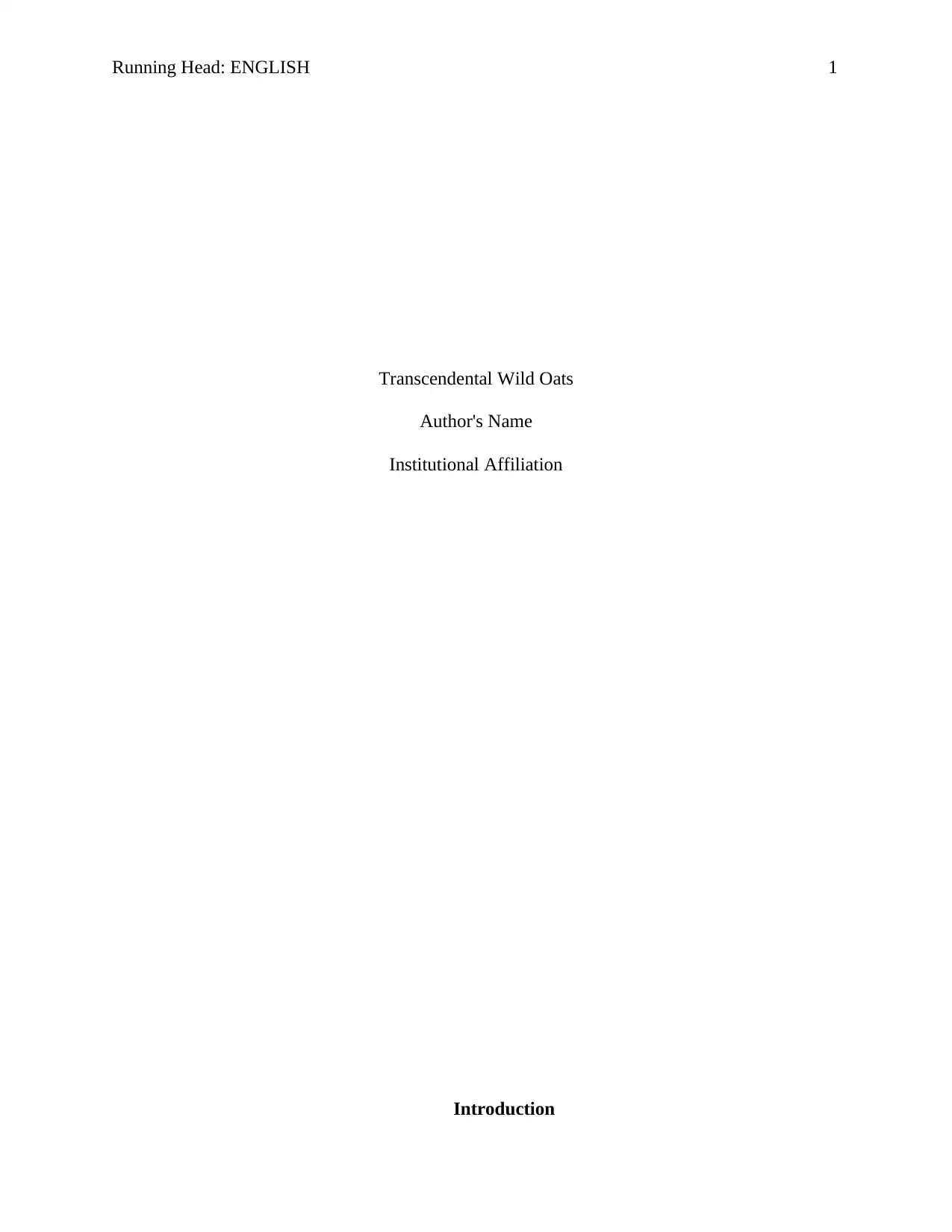
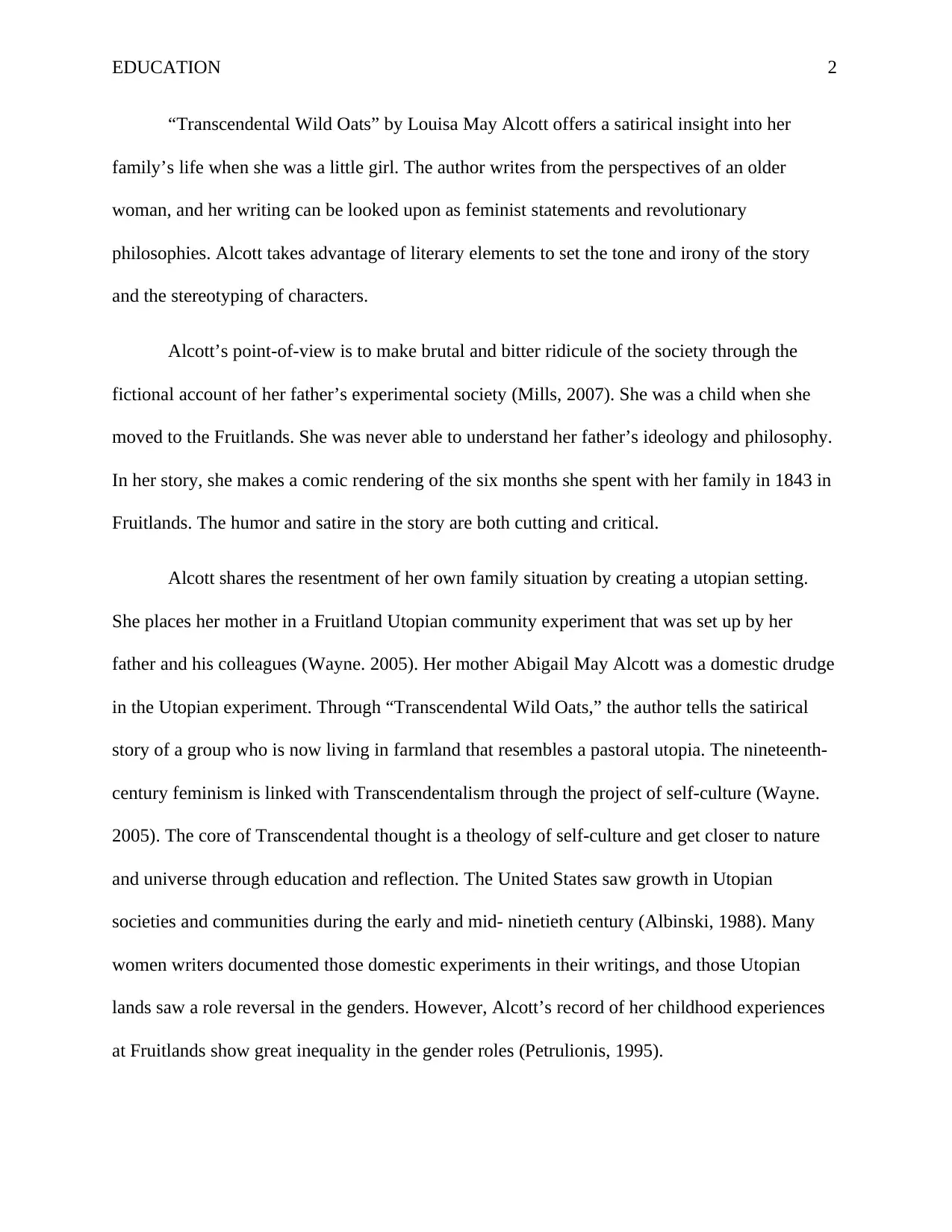
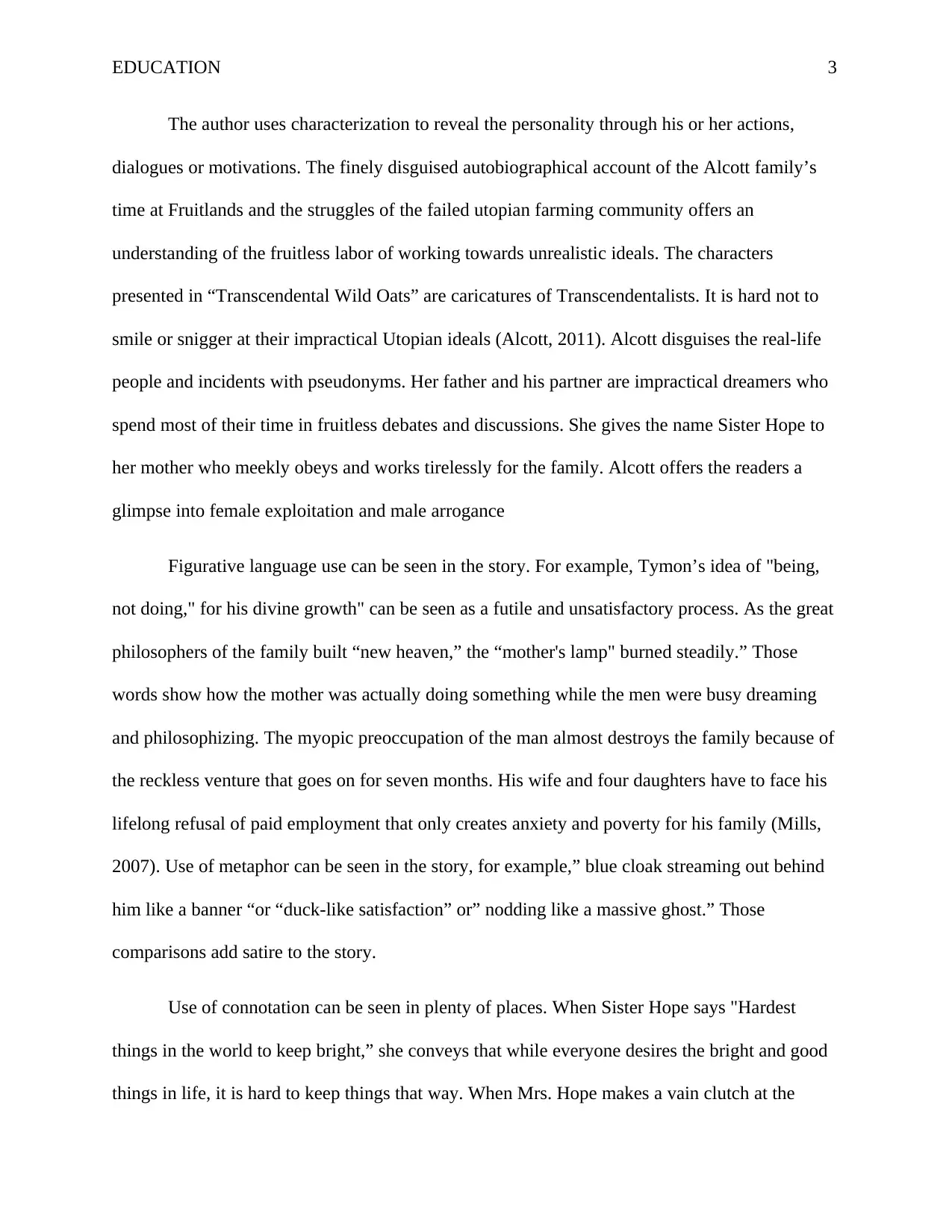

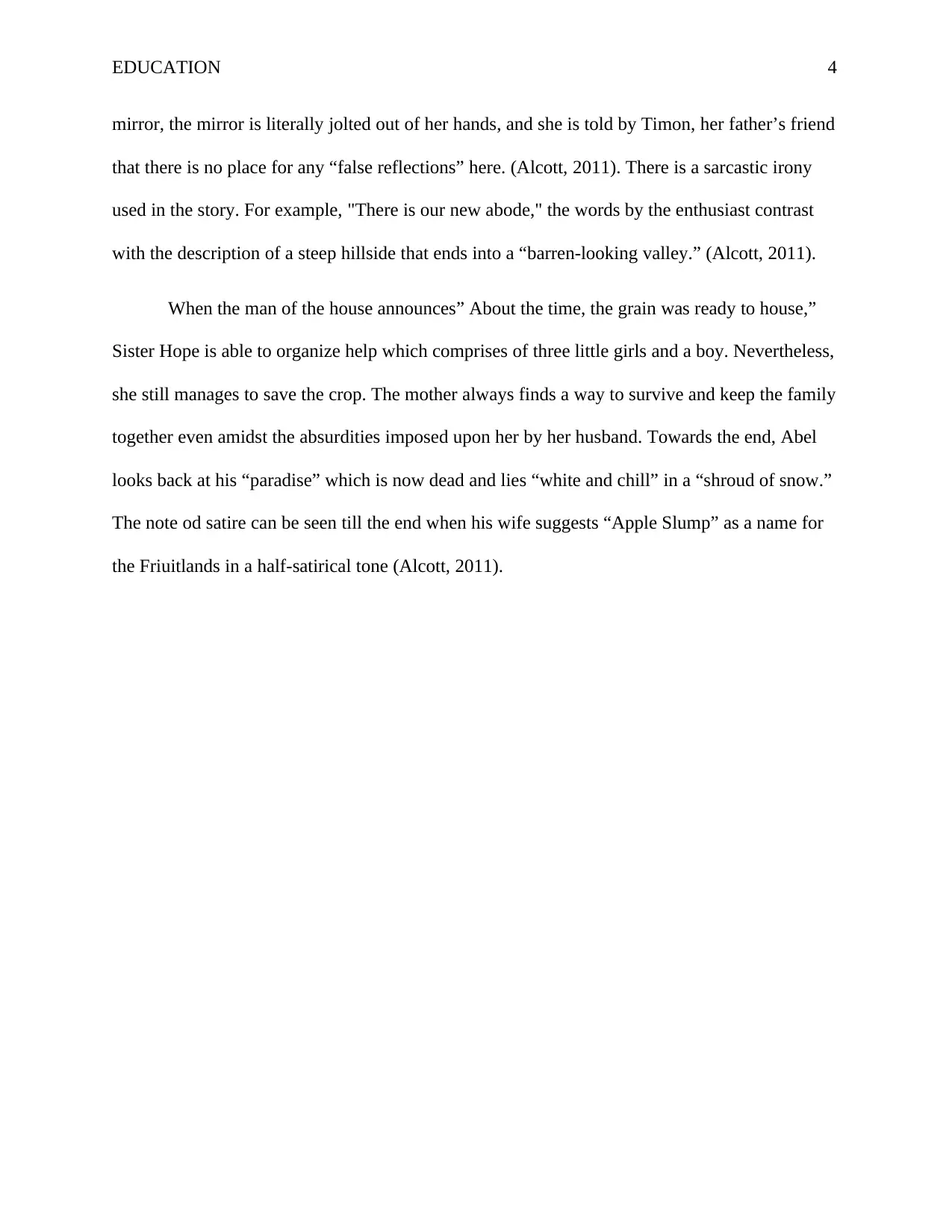
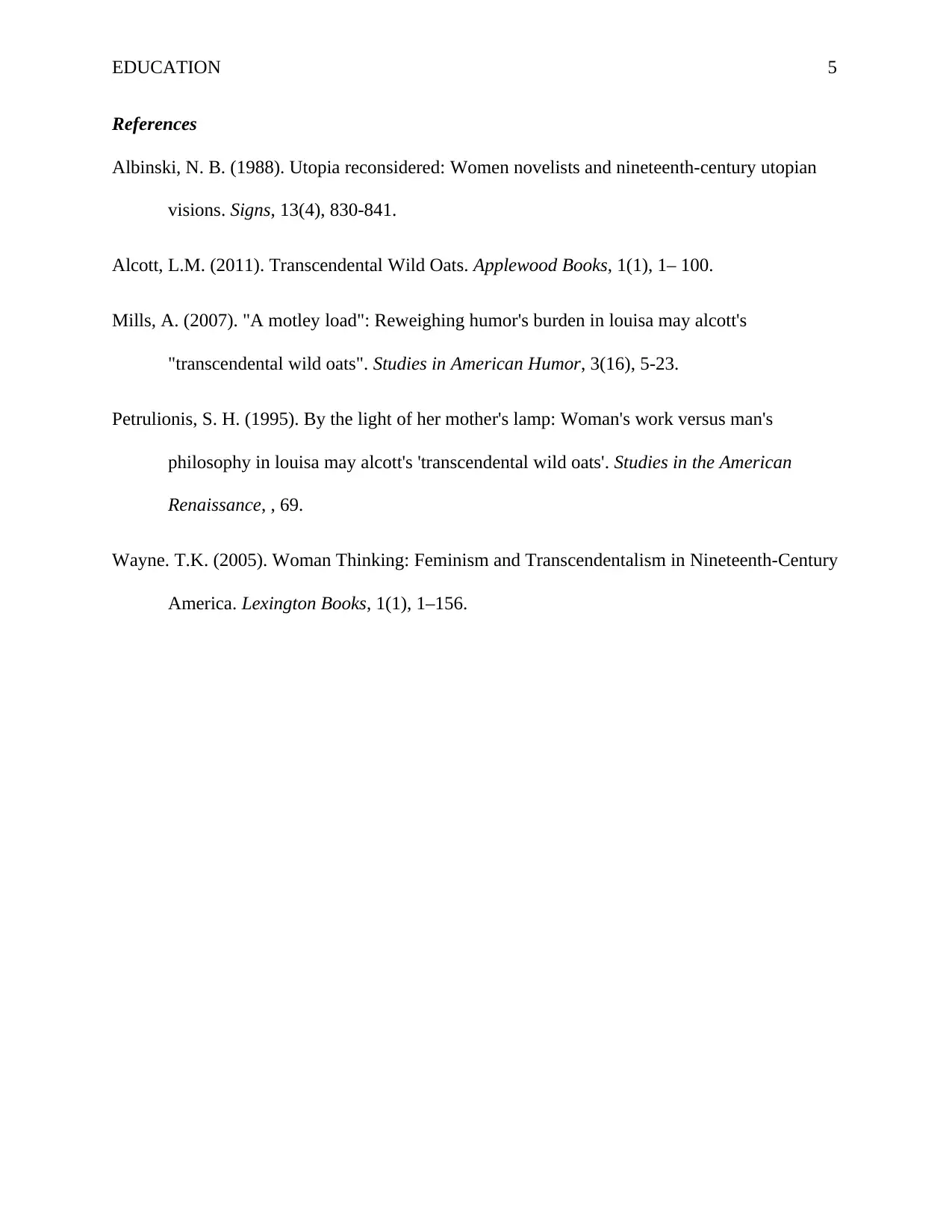

![[object Object]](/_next/static/media/star-bottom.7253800d.svg)